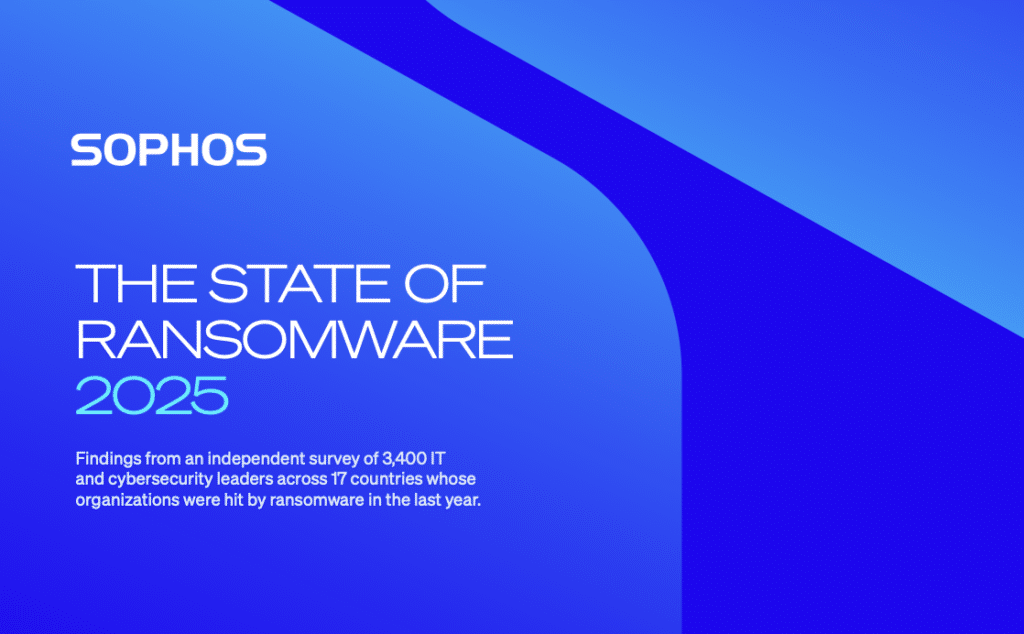Businesses are losing money and jeopardising security to IT sprawl and quick fixes, says Espria

IT Leaders must take action on unchecked technology sprawl and shadow IT that are draining budgets, increasing cyber risks, and complicating their digital environment.
According to a recent study, budgets towards insider risk management have doubled in the past 12 months, with 81% of business leaders looking to secure their internal business infrastructure as geopolitical tensions escalate and remote workforces become the norm.
‘Digital transformation ushered in new possibilities and solutions for computing, but it also introduced a potential for sprawl that burdens IT teams everywhere,’ said Brian Sibley, Virtual CTO at Espria.
‘When faced with an urgent problem, it’s only natural to install quick-fix tools to manage the situation and catch up with competitors, but without considering the long-term effects, this can snowball into an IT landscape that becomes progressively difficult to manage.
‘Without full visibility of every application in their infrastructure, organisations are exposed to cyber risks and potential compliance violations. Now burdened with growing time and security demands, IT teams are tackling shadow IT risks and unused tools that drain resources.’
The shifting political landscapes will bring further cyber inequity and with the predicted UK economic turbulence for 2025, Sibley believes that organisations must simplify their core IT stack now to become resilient against future troubles.
Sibley continued, ‘While businesses cannot control the political climate, IT leaders can control the cyber resilience of their infrastructure, and this begins with a thorough clean-up of the digital environment. A bloated tech stack and sprawling IT landscape will lead to a lack of oversight that allows malware to sneak in through unpatched vulnerabilities linked to unapproved apps and dormant systems no longer in use.
‘Not to mention, the advancements in AI that have broadened the scope and capabilities of cyber threats, enabling more sophisticated and automated attacks. To get ahead of any changing market demands and downturns, businesses should organise, optimise and update their IT infrastructure to remain agile and resilient.
Sibley goes on to describe the benefits of cutting and consolidating technology to reduce costs as well as retrofitting with new solutions that fit the business structure.
‘Areas of IT overlap and accumulation of unidentified tools must be addressed by leaders to eliminate potential vulnerabilities from unpatched software. Instead of overbuying products that overwhelm admins and wastes budget, proactive cost cutting and technology consolidation will contribute to a more resilient infrastructure.
‘Working with a managed service provider can help businesses evaluate any redundant software, optimise licensing fees and identify out-of-date hardware. By conducting a thorough assessment of systems, businesses can then identify the essential systems, implement the best fit solutions, and take the necessary steps to consolidate redundant or unnecessary tools.
‘After reducing tech bloat, teams can improve visibility across systems, allowing for better resource allocation and faster troubleshooting. IT leaders are also in a better cash position to invest in the future path to help the business grow.’
Sibley concluded, ‘Unchecked IT infrastructure can undermine the business’s security and financial posture and prevents the development of the kind of adaptability required to meet evolving economic challenges/times.
‘Without clear visibility of your infrastructure, organisations are leaving gaping holes that must be addressed to avoid serious liabilities such as compliance risks, reputational damage if there’s a breach, and costly security remediation and investment. Solving IT sprawl and shadow IT is a critical step toward a secure and scalable technology foundation. The healthier your business environment is today, the more resilient you will be in a downturn.’
You may be interested in
Is Your MSP Really Helping You Grow — Or Just Keeping the Lights On?
There’s a moment in every business where the question quietly surfaces: “Are we getting what we really need from our IT provider?” It’s not always easy to answer. On the surface, things seem fine. Tickets are resolved. Reports arrive. There’s someone to call when things go wrong. It’s familiar. It’s comfortable. And that comfort can be deceiving. Because beneath the surface, many organisations are stuck in a service relationship that feels safe — but is actually stagnant. And here’s the truth: comfort isn’t the same as progress. For many, the idea of changing MSPs or challenging the…
The 2025 State of Ransomware: Key Insights on Attacks, Costs, and Recovery
Ransomware continues to evolve — and so must our defenses. The State of Ransomware 2025 report from Sophos presents one of the most comprehensive views yet into how organisations around the world are being impacted by ransomware attacks. Based on an independent survey of 3,400 IT and cybersecurity leaders across 17 countries, the report explores how attacks are evolving, the operational weaknesses adversaries exploit, and the human and financial tolls that follow. Whether you’re building a cybersecurity strategy or assessing risk, this year’s findings offer crucial, real-world insights to guide your response. Key Findings from…
Outgrowing your MSP; businesses need a provider that scales with their growth
To stay competitive, business leaders must align with MSPs that deliver strategic value, drive innovation, and support to scale. Now firmly into 2025, it’s becoming clear what the year has in store for the IT landscape. For SMBs, the message is clear: business growth must be matched with smarter, more scalable managed services. The demand for cyber-resilient, cloud-first and AI-integrated solutions is no longer a forecast – it’s a reality already shaping business priorities. According to leading global technology market analyst firm Canalys’ MSP Trends 2025 report, the MSP model is transforming under growing pressure…
End of windows 10 support signal urgent action needed from UK organisations as cyberattacks continue to rise
Recent breaches at major UK retailers, combined with the approaching end of life of Windows 10, highlights a critical moment for IT resilience planning The recent wave of cyberattacks targeting major UK retailers has highlighted the growing security risks associated with organisations running outdated systems and applications and maintaining weak identity verification protocols. These incidents—particularly those involving Marks & Spencer and the Co-Op—have starkly exposed how vulnerable legacy infrastructure and insufficient access controls can be. In both cases, attackers successfully posed as legitimate employees and manipulated IT help desks into resetting internal passwords, ultimately gaining…
UK SMEs must fortify their cybersecurity against geopolitical risks, says Espria
A recent Sky News investigation highlighted an uptick in cyberattacks tied to the Iran conflict that are targeting businesses across multiple sectors. Speaking at the NATO Summit, Prime Minister Sir Keir Starmer urged UK businesses, regardless of size or sector, to prioritise cybersecurity and ‘take immediate steps to review and strengthen their defences.’ While the warning is timely in tone, businesses are already becoming targets of politically motivated cyberattacks, emphasising the need for heightened vigilance. “As tensions spread globally, threat actors will continue to exploit digital vulnerabilities, and neutral businesses may be caught in the…
Why Businesses Should Invest in ESG: Lessons learned by Espria
In today’s competitive landscape, Environmental, Social and Governance (ESG) performance is no longer just a “nice to have”—it is a critical business imperative. Companies that prioritise ESG are better positioned for long-term success, risk mitigation, and reputation enhancement. Today’s world demands more from companies than just financial performance. Customers want transparency. Employees want purpose. Investors want resilience. ESG helps businesses manage risk, seize new opportunities and build trust with the people who matter most. It is how you can stay competitive, stay responsible and stay relevant in a fast-changing world. A powerful case study of…





